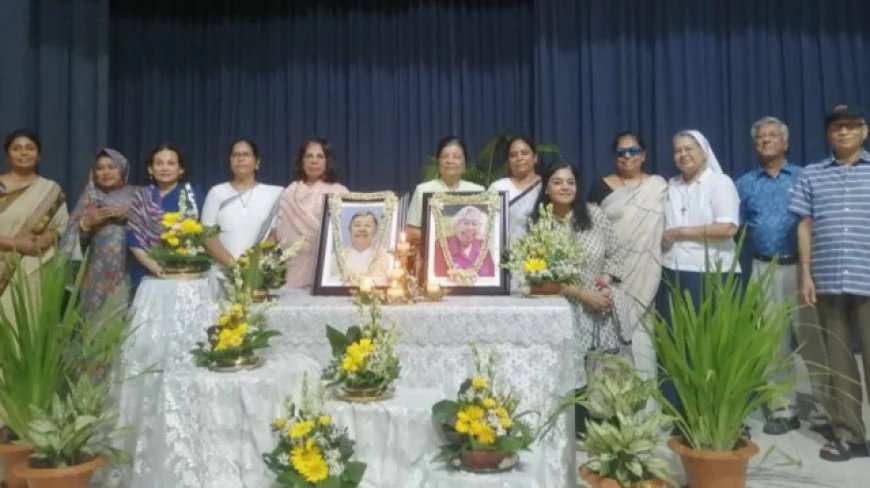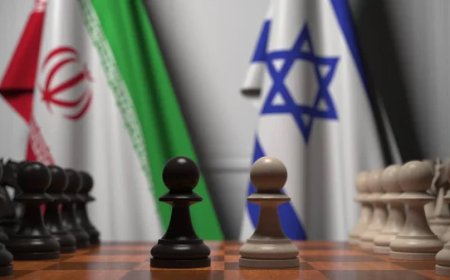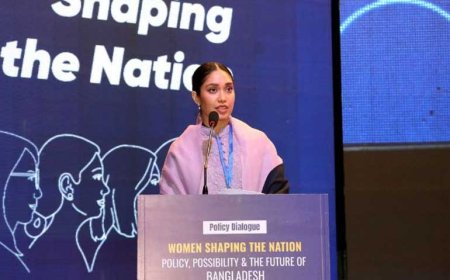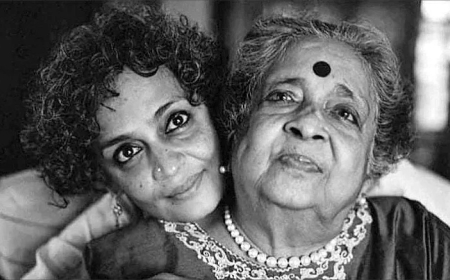Thank you, Sister Joann
Remembrance for a true friend of Bangladesh who spent over five decades in this country, shaping generations of girls into young women and leaving an indelible impression on them and the nation

May 13, 2025 Sister Joann Havelka (Sister M. Edward Joann), born August 4, 1932, passed away in Saint Mary’s Convent, Notre Dame, Indiana. She was 92 years old and today would have been her 93rd birthday.
She was involved in education and community service for 37 years in Bangladesh. She was an English and history teacher, and at times principal and head mistress, at Holy Cross Girls’ Highs School and Holy Cross College, Dhaka, Bangladesh, for more than 20 years.
Various publications circulated the news during mid-May and the most recent memorial service was held in mid-July 2025 in Dhaka. I am summarizing from her detailed obituary.
Born and raised in Baltimore, Maryland Joann attended Catholic academic institutions. She was a member of the high school’s basketball and field hockey teams (including team captain).
She joined the Sisters of the Holy Cross, Notre Dame, Indiana, on September 7, 1952. She taught for three years in New York and Texas, before completing her bachelor's degree in history from Saint Mary’s College, Notre Dame, Indiana, in 1959. Founded by the Sisters of the Holy Cross in 1844, Saint Mary's College is known for its strong focus on women's education.
In 1959, Sister Joann came on her first foreign assignment to what was known as Dacca, East Pakistan. From the moment she arrived in the country, she loved the people and the language, describing it as “soft, poetic, and even musical,” but challenging to learn. Sister Joann, calling herself a “notorious talker,” credited her desire to express herself, and to hear others’ thoughts, for her determination to be fluent in Bengali. She earned her master’s degree in history in 1965 from University of Dacca. She taught and lived in Holy Cross School and College, Dhaka; Narayanganj Preparatory School, Narayanganj; Lokhipur Mission School in Kulaura, Moulvibazar.
On May 14, when I received the news of her passing, as most Holy Cross former students, I took a minute to send an earnest thought of eternal peace for Sister’s departed soul.
The immediate message I wrote in my Holy Cross classmate Whatsapp group was: “Oh this is very sad. She taught us so much -- a very good leader. May she rest in eternal peace.”
Other classmates shared similar sentiments with nicer words. Mine was a quick reaction on a busy Tuesday. Later in the week, I thought of how important Sister Joann had been for me. She was the reason I actually attended Holy Cross. I thought I should write a piece in her honor within a few days.
It has now been well over two and a half months -- a delay that is just the opposite of what Sister Joann taught me. I sincerely hope this piece remembering her contribution to my life does get published on August 4: she came into the world on that day in 1932.
In 1977 it was impossible to get admission to any of the well-known government or private schools in Dacca, including Holy Cross Girls’ High School. Admission assessment tests were done for the entry level class and there was rarely an open seat in other classes.
The school year was January to December for both Bengali and English medium schools and under normal circumstances I should have been a student in Class 4. I was not in normal circumstances. I used to live in Jackson, Mississippi and I used to love Jackson, Mississippi. But my highly qualified obstetrician gynecologist physician mother had decided to move me to Dacca because she wanted to work for her country. I didn’t have a say in this decision and at that time didn’t understand the nobleness of the decision.
Holy Cross had converted from English medium to Bengali medium in accordance with post-liberation government directive. Only a handful of schools, mainly called tutorials, were allowed to stay English medium.
It was an act of patriotism by Holy Cross in the newly founded nation to fully adopt and implement Bengali medium in primary and secondary level. This included full Bengali medium Secondary School Certificate (SSC), and Higher Secondary School Certificate (HSC). It also showed Holy Cross administration and teachers’ full commitment in serving the middle-class community since they were placing their children into Bengali medium schools. The tuition was within a middle-class budget. More importantly, the parents and joint family members of the student could understand Bengali medium academic material and help them with homework. Successive governments of the newly founded nation were implementing the Bengali language in government services, public domain and civic society, so the families could see their offspring attaining admission in tertiary institutions (all of which were government owned) and getting jobs in the resource-constrained nation.
“Tuition at English medium tutorials is exorbitant for a government Associate Professor or Joint Secretary level person’s wallet. What will the young person do after O level? There are no proper labs for science A level and even after a Humanities A level, how can one afford to send them to UK for university? The future of English medium schooling is unclear for most of us,” my mother’s senior friends who were specialist physicians at DMCH said to her.
I did not know Bengali.
Mothers with master’s in history or English degrees stood at the gate of Holy Cross to request an admission test for their intelligent 7-year-old daughters who could read and write at Class 3 level Bengali and English to get them admitted in Class 2.
Mrs. Ruby Qader was family friend of my mother and a good friend of the Sisters of Holy Cross. She called my mother one evening and proposed taking us to Holy Cross the next morning. My mom was a full time Associate Professor at IPGMR and routinely arrived at the hospital at 8am. Nevertheless, the proposal was amazing and the next morning we arrived at Holy Cross at 10am when it was in full session.
I walked into the premises and immediately had a pleasant feeling; It was calm, spacious, and aesthetic. I had no idea how privileged we were, thanks to Ruby aunty, to be seated inside Sister Joann’s office within a few minutes of our arrival. After exchanging pleasantries with the two adults and hearing their request, Sister stated that there were no openings available for a student. The conversation was polite and pleasant and in English.
Sister then turned to me and asked how I was doing. I smiled and told her that I was getting used to Bangladesh, and I missed the US. Sister asked what aspect of the US I missed and I told her about my school activities there. I spoke about how I enjoyed spending time with my grandparents now.
Sister Joann said: “Why don’t we go for a walk?” and I got up and let her lead the way out of her office into the corridors. As we chatted, she mentioned her own elementary school. When we went to the second floor and walked past Class 3, I saw one student standing in front of the class and singing. I smiled at her and somehow, I caught her eye and she smiled while singing.
We returned to her office room where my mom and Ruby aunty were sitting and Sister said,
“We don’t have any openings for a student in Class 4. We do have a seat in Class 3, and I think Lubna will do well there as she felt an affinity for the girls in the class. Lubna’s Bengali is below the norm in Class 3, however, I see an eager learner.”
I have no idea how Sister came to the decision. My mom made the counter point:
“She is a Bengali girl, so she’ll be up to speed in a few months,”
“You are probably correct, doctor,” Sister responded. “Bring her tomorrow morning for assembly, and she’ll begin in Class 3.”
My personal tale does show the signs of preferential treatment. Yes, I did bypass the normal route for admission in a very prestigious school. My mom did not have to pay any donation money or provide her medical services (all of which can be categorized as some form of benefit payment) or bribe beyond the tuition which was probably Taka 40 per month. I also don’t want to use the excuse: “It was a different time, different social setting.”
Even with the lenses of 2025, the way to explain what transpired is as follows: Based on her experience as a teacher, administrator, and American, Sister Joann took an executive strategic decision and decided I was going to be a good addition to Holy Cross. Had there been an admission exam in Bengali with a room full of hopeful candidates for that seat, I would not have received the highest marks. I fully admit it. She gave me a huge opportunity. Thank you, Sister Joann.
Did Sister Joann make the right decision by allowing me into the grey and red clad school uniform circle? I enjoyed every day of Class 3, and within two report card cycles had marks which placed me at the top-third out of 100 classmates. One day while we were all following our homeroom teacher’s instructions, Sister Joann came in and asked me to pack up my bag. I did so without any worry as I was too young to get alarmed and think of calamity. When we were in the corridor, she said,
“Your mother and I just finished speaking. When you first came here, I placed you in Class 3 because you did not know the right academic level of Bengali. You have shown good improvement, so your mother has convinced me you should be placed in Class 4. I told your mother she should go provide her service to her patients and I should do my work and take you to your new classroom.”
I performed above average for the remaining year in Class 4. I did not qualify for the Class 5 Junior Scholarship exam (known as বৃত্তি) as I was not among the top 20 of my 100 classmates. I usually ranked within the top-quarter to the top-third during Class 5-7. I loved my school days and liked most of the lessons, but I wasn’t diligent in revision, homework, and test preparation.
I made very good friends, put my hand up to get picked for activities, and couldn’t wait to get books from the school libraries. I wasn’t good at sports and made up for it by spending time on school paper articles, bulletin board projects, science projects, etc. I sang off-key so wasn’t part of singing performances, and I danced at the school Spring function and had roles in the school plays.
I represented my section and later my school in debate, extemporaneous speeches, and poetry recital competitions. Then after the half-yearly exam in Class 8 I discovered how to do revision and focus on homework -- it translated into better grades in every subject. In Class 9 and 10 I got the top marks in the Humanities section and was voted Class President in my section. Throughout this period, Sister Joann was our headmistress.
I tried my best in the SSC and stood second in Humanities in Dhaka Board. I was upset when the result came out because I had not lived up to the teacher’s anticipation that I would stand first and keep Holy Cross’ record of standing first intact. I’m not touting my morn here nor justifying Sister Joann’s decision to take me in without an admission test. In fact, I think Sister Joann could have given that seat in Class 3 to many other girls who would have probably done similar or better than me. The reason is Holy Cross had a very good system based on teachers who had dedication and inspired us to learn. The methods and processes encouraged us to be curious, participative well-rounded individuals. Throughout the decades, most of the students went to the best tertiary academic or performance or fine arts institutions in the nation.
Sister Joann left Bangladesh to work in India in 1998, and after 14 years in Bengaluru and Shillong, in 2012 returned to Saint Mary’s, Notre Dame. The narrative by locals often becomes Sister Joann and other educators like her came for missionary work. In my assessment, this is too narrow and doesn’t recognize all the ways Sister made a lifelong impression on students and parents.
Holy Cross contributed to the nation building of Bangladesh. We were taught to be patriotic and represent the best of Bangladeshi youth. We were excited to be selected to participate in the capital city or national events. Each section in Holy Cross had girls of different faiths and we grew up as friends. We were taught to find the common values in our different religions, wish friends for their religious holidays, and recognize our humanity. This was the most valuable lesson I learned at Holy Cross, and I am not sure I would have received this had I gone to any other school in Bangladesh.
Those of us who were in Holy Cross during Sister Joann’s time will smile reading the remaining sections from her obituary: She was fearless and practical. She could dispose quickly of a snake in the house; drive her motorbike in busy traffic or a great distance; or take command of a bus on a winding mountain road when she sensed the driver was impaired.
What's Your Reaction?
















































































